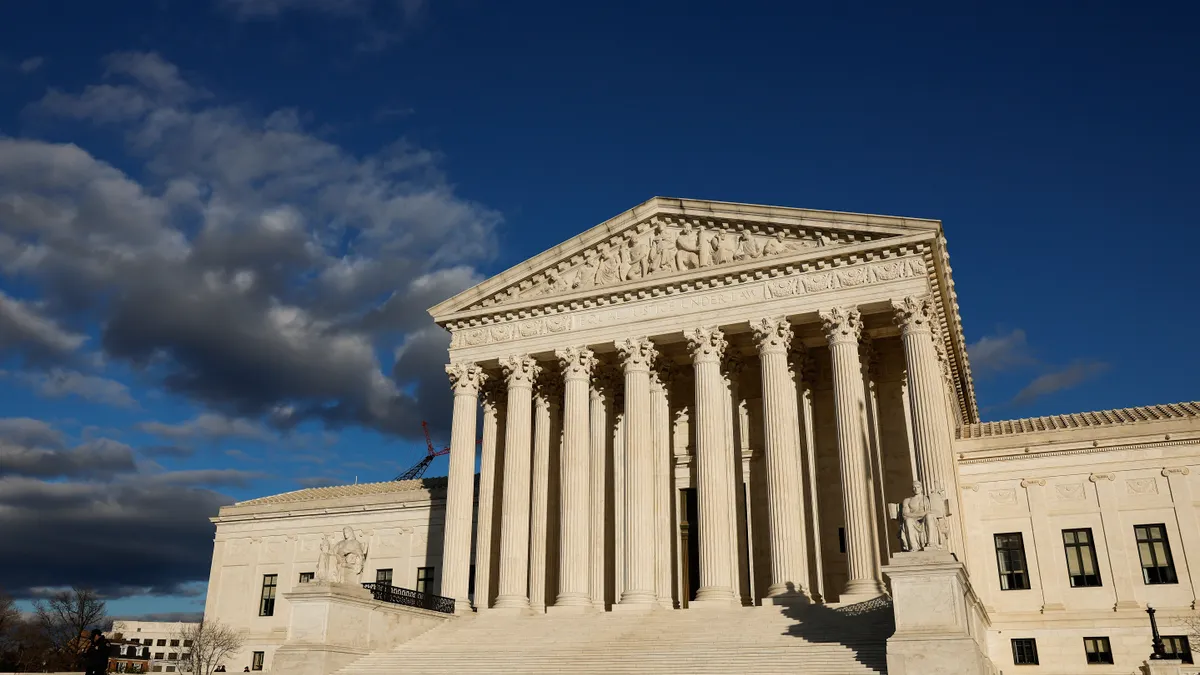Dive Brief:
- In the wake of a recent U.S. Supreme Court ruling that undermines federal agencies’ rulemaking authority, two U.S. House Republicans are requesting information on Biden administration-era actions that could be affected by the court’s decision.
- House Transportation and Infrastructure Committee Chairman Sam Graves, R-Mo., and Oversight and Accountability Committee Chairman James Comer, R-Ky., outlined their requests in July 10 letters to leaders at the U.S. Department of Transportation, Department of Homeland Security and Environmental Protection Agency. The Congress members asked for a response by July 24.
- The Supreme Court’s June ruling in Loper Bright Enterprises v. Raimondo ended a decades-long precedent of the Chevron doctrine, under which courts deferred to federal agencies’ interpretation of laws. The recent ruling says that “agencies have no special competence in resolving statutory ambiguities. Courts do.”
Dive Insight:
The Supreme Court’s decision overturning the Chevron doctrine is expected to significantly curtail federal agencies’ ability to interpret the laws they administer, with wide effects on environmental and other regulations.
Among the most contentious of the Biden administration’s regulations is the DOT’s rule requiring states and metropolitan planning organizations to establish declining targets for transportation-related CO2 emissions. The rule was immediately contested by a group of 21 states and Texas. In March, a Texas court found that the transportation department did not have congressional authority to issue the rule.
Some conservative federal lawmakers favor these potential restrictions on agency authority.
“Perhaps no administration has gone as far as President Biden’s to found sweeping and intrusive agency dictates on such questionable assertions of agency authority,” says the letters from Graves and Comer. “Many of these rules — such as those promulgated to impose President Biden’s climate, energy, and Environment, Social and Governance (ESG) agendas — have been based on aggressive interpretations of statutes enacted by Congress years and even decades ago, before many issues against which the Biden administration has sought to deploy them were even imagined.”
The letters ask for lists of pending rulemakings or agency decisions that may be challenged based on the Supreme Court’s recent decision. The Committees also asked for records of pending or completed agency enforcement actions that relied on the Chevron interpretation as well as judicial decisions where the court deferred to the Chevron doctrine and which were not subsequently overturned by higher courts.
In addition, the Committees seek information on any rules interpreted by an agency that could result in economic impacts or would have “significant adverse effects” on competition, employment, investment, productivity, innovation, public health and safety or the ability of U.S. companies to compete with foreign businesses.
“The demise of so-called Chevron deference could upend the regulation in nearly all aspects of American commerce, opening the floodgates for litigation, with existing laws and future rule-making up for grabs,” said Samir Gandhi, global practice leader of the capital markets group at the Sidley law firm, on a recent podcast episode from the company.












